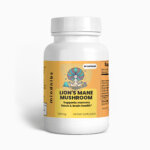
“Eye on the Prize: Supplements for Optimal Vision Health”
Your vision is one of your most valuable senses. It allows you to navigate the world around you and experience life’s many wonders. However, with age, environmental factors, and lifestyle choices, our vision can become less sharp and more prone to ailments. The good news is that there are several ways to take care of your eyes and ward off vision problems. One of the most effective methods is through supplements that support optimal vision health. In this article, we’ll explore the top supplements that can help improve your eyesight and keep your vision in tip-top shape. So, sit back, relax, and let us help you keep your eye on the prize!
1. Introduction: Why Taking Care of Your Vision Health is Crucial
Maintaining good vision health is essential for everyone, whether young or old. It is a known fact that the ability to see has a significant impact on our daily lives, enabling us to perform simple tasks such as reading, writing, driving, and even socializing. However, as people age, their eyes become more susceptible to age-related diseases, leading to vision problems. Therefore, taking care of your eyesight can especially benefit individuals who are at a higher risk of developing vision problems.
One of the most significant reasons why taking care of your vision health is crucial is the prevention of eye diseases. According to the National Eye Institute, common eye diseases such as cataracts, glaucoma, and age-related macular degeneration (AMD) are prevalent among older adults. However, you can prevent or slow down the progression of these diseases by taking proper care of your eyesight. This could include regular eye exams, eating a healthy diet rich in eye-nourishing nutrients, such as lutein and zeaxanthin, and protecting your eyes from UV radiation.
In addition, maintaining good vision health also enables you to maintain your quality of life. While poor eyesight can limit your ability to perform daily tasks, such as driving and reading, it can also impact your mental health, leading to feelings of depression and isolation. Therefore, taking care of your vision health can help you sustain your independence, boost your confidence, and maintain your overall health and well-being.
2. The Role of Nutrition in Maintaining Optimal Eye Health
When it comes to maintaining optimal eye health, nutrition plays a vital role. The foods we consume contain various nutrients that support the health and function of our eyes. Therefore, incorporating a balanced and nutritious diet can contribute to reducing the risk of eye-related problems.
Eating a variety of fruits and vegetables high in vitamins A, C, and E, as well as omega-3 fatty acids and zinc is essential for maintaining healthy eyes. Vitamin A helps to protect the cornea, while vitamin C supports healthy blood vessels in the eyes. Vitamin E and zinc, on the other hand, are essential for slowing down age-related vision loss. Omega-3 fatty acids, found in fatty fish such as salmon and tuna, also offer fantastic benefits for the eyes, as they can help prevent dry eye syndrome, macular degeneration, and glaucoma.
In addition to these essential eye nutrients, hydration also plays a crucial role in maintaining eye health. Keeping the body and eyes well-hydrated by drinking plenty of water not only helps to prevent dehydration, but it can also help to reduce dry eye symptoms.
- Conclusion: A healthy and balanced diet is imperative for maintaining optimal eye health. By incorporating various fruits and vegetables rich in essential vitamins and supplements such as omega-3 fatty acids and zinc into your diet, you can reduce the risk of developing eye-related problems and enhance your visual health.

3. Essential Supplements for Enhancing Vision Health
Your vision is one of the most precious senses, and it’s important to take good care of it. In addition to following a balanced diet and ensuring good eye hygiene, taking supplements may also enhance your vision health. Here are three essential supplements to consider:
- Lutein and zeaxanthin: These two carotenoids are known for filtering high-energy blue wavelengths of light that can cause damage to the eyes. They can be found in foods such as leafy greens, but supplementing with them can help enhance their benefits.
- Omega-3 fatty acids: These essential fatty acids are known to improve visual acuity and could help reduce the risk of developing age-related macular degeneration. They can be found in fatty fish like salmon or taken in supplement form.
- Vitamin A: This fat-soluble vitamin is important for maintaining good vision and preventing night blindness. It’s found in foods like liver, sweet potatoes, and carrots, but for those who don’t get enough from their diet, taking a supplement could be beneficial.
Taking these supplements may help protect your eyes and maintain healthy vision. However, it’s important to remember that supplements should never replace a balanced diet and good eye care habits. Always consult with your healthcare provider before starting any new supplement regime.

4. Vitamin A: The Key Nutrient for Eye Health
Vitamin A is an essential nutrient for maintaining healthy eyes and good vision. It plays a key role in preventing and treating night blindness and other eye-related problems such as cataracts and macular degeneration. Vitamin A deficiency is a common problem in many parts of the world and can lead to severe eye impairment, including total blindness.
The recommended daily intake of vitamin A varies according to age and gender, but it is generally between 700 and 900 micrograms for adults. Good dietary sources of vitamin A include liver, dairy products, carrots, sweet potatoes, spinach, and other leafy green vegetables. Supplementation may also be needed for individuals who are not able to meet their daily vitamin A requirements through their diet.
Ensuring adequate intake of vitamin A is crucial for maintaining optimal eye health, especially as we age. Incorporating vitamin A-rich foods into your diet and taking supplements if necessary can go a long way in preventing and treating eye-related problems and preserving your vision for years to come.
Benefits of vitamin A for eye health
- Prevents night blindness and improves vision in low light conditions
- Helps maintain the structure and function of the cornea, the outermost layer of the eye
- Reduces the risk of cataracts, a common age-related eye condition
- Helps prevent and slow down the progression of macular degeneration, another age-related eye disease
Tips for incorporating vitamin A into your diet
- Eat a variety of foods that are rich in vitamin A such as liver, dairy products, carrots, sweet potatoes, spinach, and other leafy green vegetables
- Include these foods in your meals regularly to ensure you are meeting your daily vitamin A requirements
- If you are unable to consume adequate amounts of vitamin A through your diet, consider taking vitamin A supplements after consulting your healthcare provider

5. Omega-3 Fatty Acids: The Eye-Boosting Nutrient
Omega-3 fatty acids are essential fats that are crucial for maintaining the health of our eyes. Studies have consistently shown that omega-3s can exert a positive influence on vision health and lower the risk of developing various eye problems. Here are some of the ways omega-3 fatty acids can benefit our eyes:
- Reducing the risk of macular degeneration – Macular degeneration is a progressive eye disease that affects the central part of the retina. The omega-3 fatty acids EPA and DHA found in fish oil can help prevent the accumulation of harmful compounds in the retina, which can cause damage over time.
- Relieving dry eye symptoms – Dry eye syndrome is a common condition characterized by insufficient lubrication of the eyes, leading to discomfort, redness, and irritation. Omega-3s can help increase tear production and reduce inflammation, alleviating the symptoms of dry eye.
- Preventing cataracts – Cataracts are a clouding of the eye’s lens that can interfere with vision. Studies have shown that a diet rich in omega-3 fatty acids can reduce the risk of developing cataracts by up to 12%.
Incorporating omega-3s into your diet is fairly easy, as there are many food sources that contain these healthy fats. Some of the best sources of EPA and DHA include fatty fish such as salmon, tuna, and mackerel, as well as walnuts, flaxseeds, and chia seeds. If you don’t eat enough fish or prefer to take a supplement, you can find omega-3 supplements in the form of fish oil, krill oil, or algae-based supplements.
Ultimately, making omega-3 fatty acids a regular part of your diet can help support your eye health and reduce the risk of various eye problems. So why not add some salmon or walnuts to your next meal and give your eyes the boost they deserve?
6. Lutein and Zeaxanthin: Eye-Saving Nutrients
Lutein and zeaxanthin are essential nutrients that can help to safeguard your eyes. They are part of the carotenoid family and are found naturally in certain foods. These nutrients help to reduce the risk of age-related macular degeneration (AMD) by protecting the retina from damage caused by blue light.
Foods rich in lutein and zeaxanthin include dark leafy greens such as kale, spinach, and collard greens. Other sources of these essential nutrients include eggs, peas, corn, and broccoli. Consuming these foods regularly can boost your eye health and help to preserve your vision.
In addition to their eye benefits, lutein and zeaxanthin also have other health benefits. They can help to reduce the risk of cardiovascular disease, lower the risk of stroke, and improve cognitive function. Given their many benefits, it’s clear that lutein and zeaxanthin are vital nutrients that should be an essential part of your diet. Make sure to eat plenty of lutein and zeaxanthin-rich foods to maintain optimal eye health and overall health.
7. Conclusion: Investing in Your Eye Health Pays Off in the Long Run
Investing in your eye health may seem like an unnecessary expense, but the long-term benefits of doing so are priceless. Here are a few ways investing in your eye health can pay off:
- Prevention of eye diseases: Regular eye exams can help detect and prevent eye diseases such as glaucoma, cataracts, and macular degeneration. By catching these conditions early, you can take steps to prevent them from worsening and potentially avoid the need for surgeries or other costly treatments.
- Better quality of life: Good vision is essential for enjoying everyday activities such as driving, reading, and watching movies. By investing in your eye health, you can ensure you have the best vision possible and avoid conditions that can interfere with your ability to see clearly.
- Cost savings: By preventing eye diseases or catching them early, you can avoid expensive treatments and surgeries in the future. Additionally, investing in high-quality eyewear and protective measures such as sunglasses can help prevent damage to your eyes, which can lead to costly vision problems down the road.
Overall, investing in your eye health is a smart decision that can benefit you in many ways. Whether it’s through regular eye exams, wearing protective eyewear, or making healthy lifestyle choices such as eating a balanced diet, there are many ways to prioritize your eye health. By doing so, you can enjoy clear vision and a better quality of life for years to come.
So next time you consider putting off that eye exam or purchasing a cheaper pair of glasses, think again. Investing in your eye health pays off in both the short-term and the long-term, and your future self will thank you for making your eye health a priority.
When it comes to maintaining vision health, it’s essential to remember that diet and lifestyle habits are the most important components for improving or maintaining vision health. However, supplementing with nutrients known to provide beneficial effects for vision health can be beneficial. Eye on the Prize: Supplements for Optimal Vision Health can provide the guides necessary to make an informed decision and take the first step towards preventing or slowing down vision decline.

























